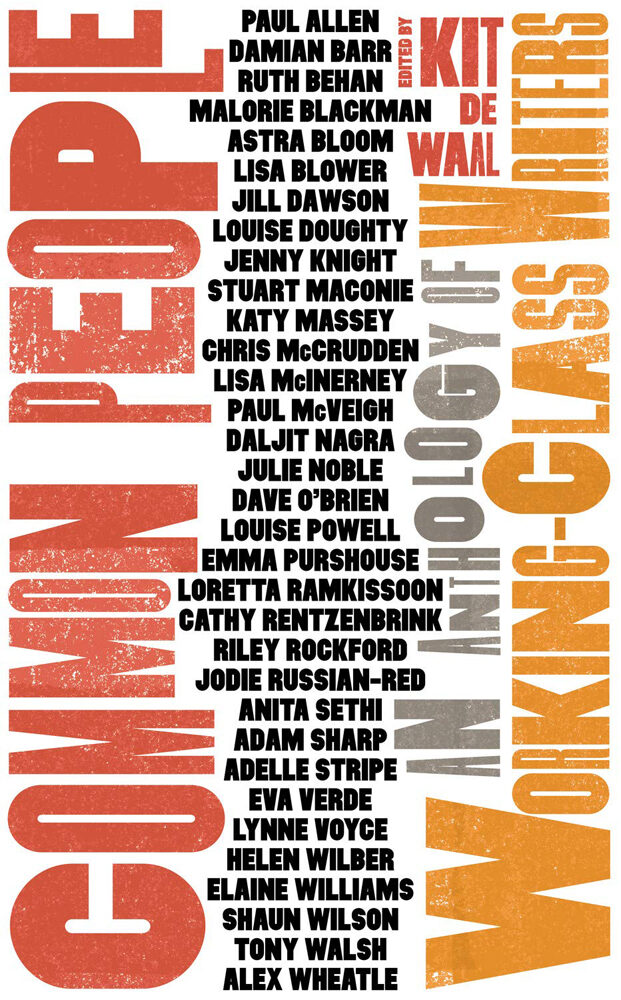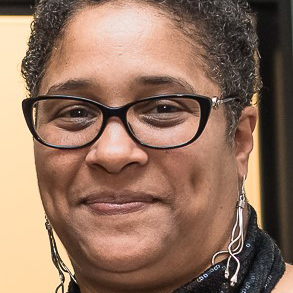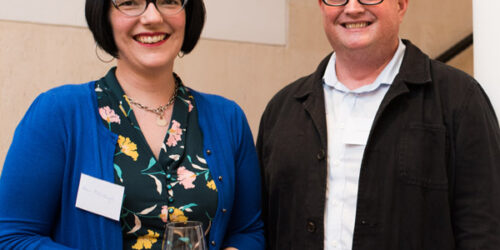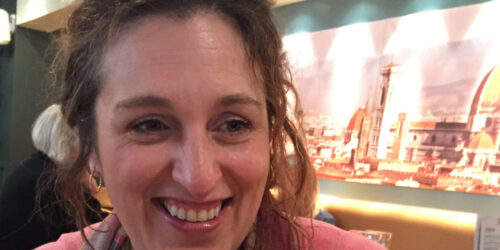
Today (1 May 2019) marks the launch of Common People: An Anthology of Working-Class Writers, edited by kit De Waal (Unbound). This follows a nation-wide open call for writers who self-identify as working class to submit writing to be considered for the anthology.
NCW led on the call in the East of England and we are delighted that two incredible writers, Eva Verde and Jenny Knight, have participated in the programme and will see their work in print. A package of training, mentoring and networking opportunities ran in parallel to the publication. The mentors were Yvvette Edwards and Cathy Rentzenbrink and below Yvvette and Eva share their reflections on the mentoring experience.
Yvvette Edwards
 When I was approached by NCW to ask whether I’d consider mentoring Eva as part of the Common People anthology project, I was excited by the idea of mentoring a writer who was, like me, from a working-class background. When you’re from a working-class background, you’re less likely to know other writers or to have friends in the publishing industry, or ones who happen to know literary agents or commissioning editors. The pathway to establishing yourself has to begin from scratch, is the product of your lone effort, and can seem near impossible. Particularly in these circumstances, I think mentoring is one of the most effective ways an emerging writer can be supported to continue writing and achieve their potential.
When I was approached by NCW to ask whether I’d consider mentoring Eva as part of the Common People anthology project, I was excited by the idea of mentoring a writer who was, like me, from a working-class background. When you’re from a working-class background, you’re less likely to know other writers or to have friends in the publishing industry, or ones who happen to know literary agents or commissioning editors. The pathway to establishing yourself has to begin from scratch, is the product of your lone effort, and can seem near impossible. Particularly in these circumstances, I think mentoring is one of the most effective ways an emerging writer can be supported to continue writing and achieve their potential.
After reading Eva’s work, it was clear she had a powerful and singular voice. I knew she was juggling family commitments and dealing with the guilt around prioritising something as frivolous as a writing hobby and I could identify with all of this, having experienced it myself. I identified with her concerns around being good enough, around whether she had sufficient talent to justify prioritise writing over everything else, around whether anyone would ever want to or enjoy reading the product of her efforts – answers: yes, yes and definitely, yes.
I think it can be enormously helpful to emerging writers to know that self-doubt and the battling with your inner demons is a normal part of the writing process and can be overcome. As a mentor, my role is not to ‘teach’ creative writing and especially not to teach anyone to write like me. It is to assist my mentee to hone their own voice, fill their boots, to develop the confidence and resilience that will empower them to soar independently. The process is made far easier when the mentee is as talented as Eva, the mentee and mentor gel, and when the mentee is so receptive to and enthusiastic about embracing the process, which Eva is. As a writer, Eva has enormous potential, and I’m so pleased to be able to play a part in helping her fulfil it.
It can be enormously helpful to emerging writers to know that self-doubt and the battling with your inner demons is a normal part of the writing process and can be overcome.
Eva Verde
 My memoir piece I am not your Tituba forms part of the collection of essays and poems selected for Common People: An Anthology of Working-Class Writers. Having my writing at last in print is a lifetime dream fulfilled, but the Common People opportunity has proven to be a gift that keeps on giving. Part of the prize was a series of development opportunities which included support from the NCW and mentoring. The idea of fresh, professional eyes on my work in progress Little Lives Like Mine was most welcome and my suggested mentor was Yvvette Edwards. I’d read and enjoyed both her books – it felt fabulous yet rather daunting to have the chance to benefit from the guidance of such talent.
My memoir piece I am not your Tituba forms part of the collection of essays and poems selected for Common People: An Anthology of Working-Class Writers. Having my writing at last in print is a lifetime dream fulfilled, but the Common People opportunity has proven to be a gift that keeps on giving. Part of the prize was a series of development opportunities which included support from the NCW and mentoring. The idea of fresh, professional eyes on my work in progress Little Lives Like Mine was most welcome and my suggested mentor was Yvvette Edwards. I’d read and enjoyed both her books – it felt fabulous yet rather daunting to have the chance to benefit from the guidance of such talent.
Meeting Yvvette was my first ever face to face chat with another writer. She put me at ease in seconds and is the loveliest, funniest and most reassuring person. A real weight lifted when she said she’d loved my opening chapters. Her suggestions were not heavy-handed and often paralleled my own thoughts for improvement, such as cutting my prologue. She encouraged me to trust my writer’s instinct. Yvvette’s advice resonated so much that I began editing immediately. I returned home energised and enthused and submitted my tweaked manuscript to the Comedy Women in Print (CWIP) prize. Already Yvvette’s suggestions are fruiting – much to my delight, I’ve been long-listed for the CWIP 2019 unpublished category. Had Yvvette not highlighted the humour in my book, I’d never have entered the competition. I have two more mentoring sessions and it’s my hope that together we can turn my now complete manuscript into something rather special.
The forthcoming Common People book launch in May is at The Southbank Centre, a place that’s always been special to me. It’ll be wonderful celebrating the book with the other contributors, too. We have all bonded through this experience, taking much pleasure from each other’s successes and supporting our writing journeys, which I hope will continue. So much good has come from this opportunity and it continues to be a positive force, not only encouraging and validating me as a writer but also by scaffolding my writing progress. It came at a time when I needed it most and I couldn’t be more thankful.
Common People: An Anthology of Working-Class Writers (Unbound) is available for purchase now.
You may also like...
Common People
Call to unpublished working-class prose writers for Kit de Waal’s anthology

1st February 2018
Emerging Translator Mentorships 2018
Winners announced on International Translation Day

2nd October 2017
‘I applied for Escalator when my baby was two months old’
Emma Vandore on juggling writing and motherhood

17th March 2017






